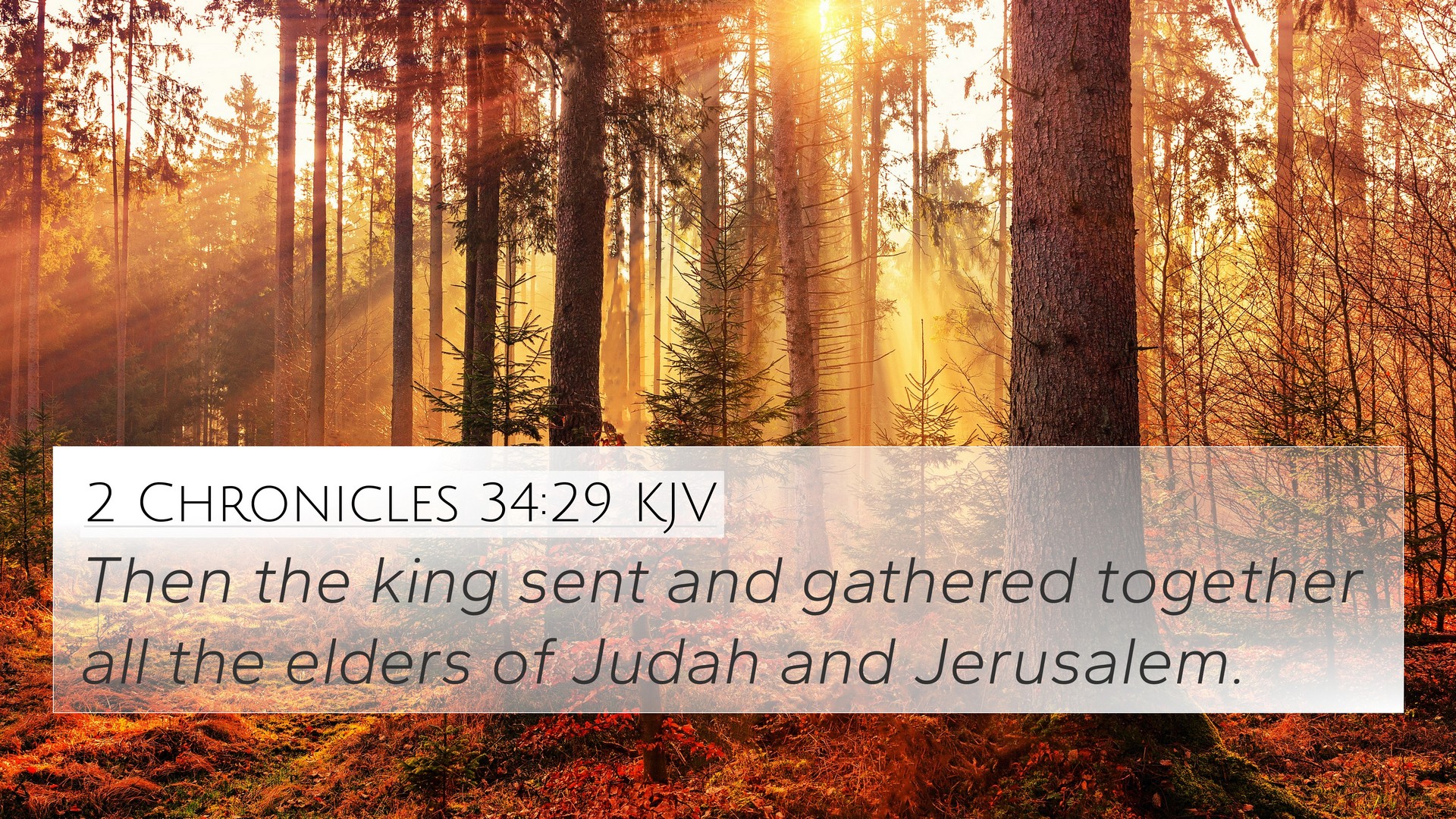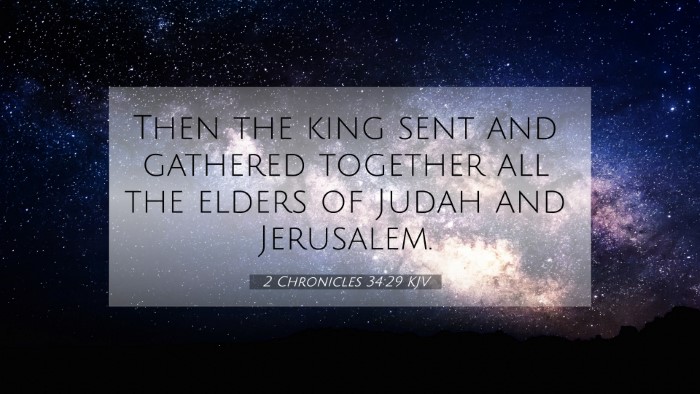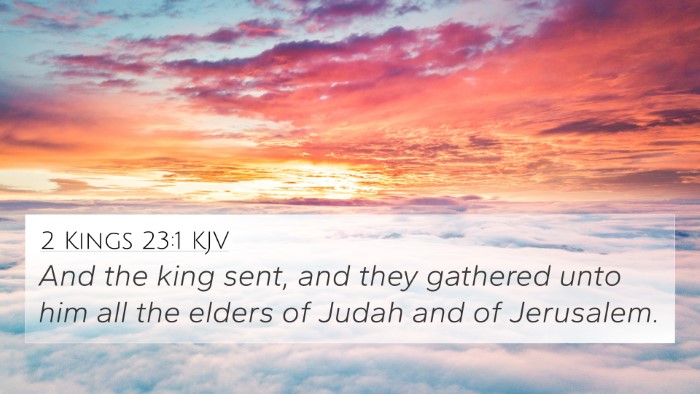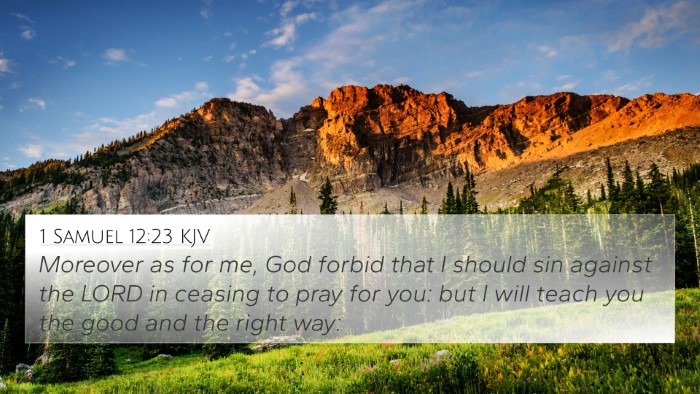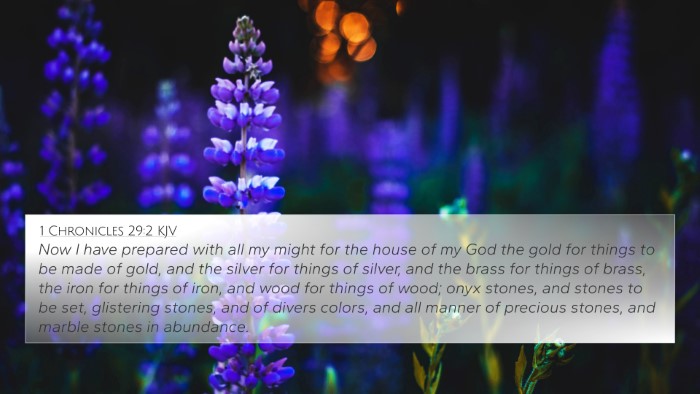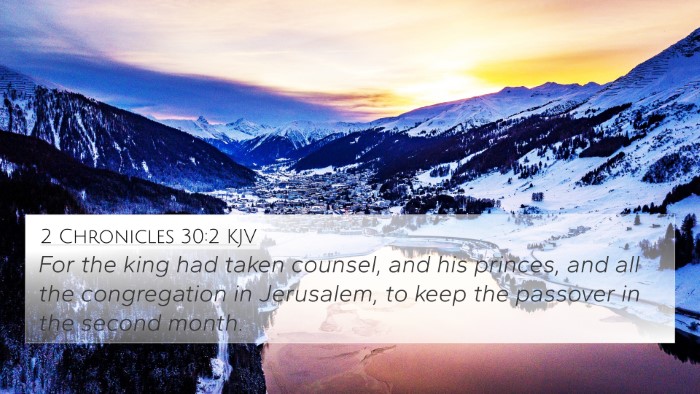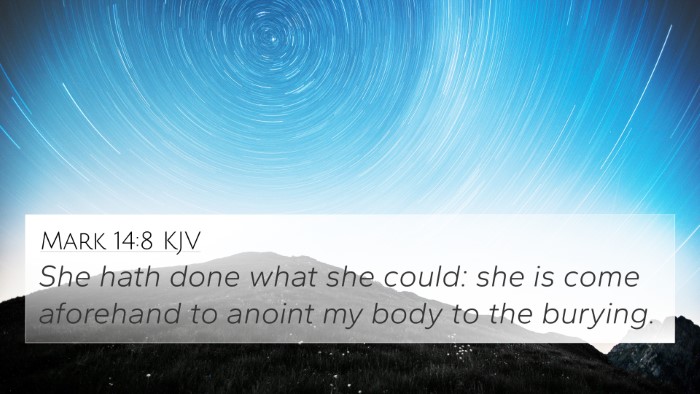Understanding 2 Chronicles 34:29
2 Chronicles 34:29 describes a poignant moment in the history of Judah, focusing on King Josiah's discovery of the Book of the Law and his subsequent actions upon reading it. This verse serves as a bridge connecting the narrative of repentance, reform, and covenant renewal in the life of the nation. Insights from public domain commentaries, including those by Matthew Henry, Albert Barnes, and Adam Clarke, help to unpack its deeper meanings.
Verse Text
2 Chronicles 34:29 (KJV): "Then the king sent and gathered together all the elders of Judah and Jerusalem."
Verse Meaning
The significance of this verse is layered, revealing King Josiah's urgent response to the Word of God. As he recognizes the weight of the Scriptures, he seeks to involve the elders in the covenant renewal process. This highlights the communal aspect of faith and governance in ancient Israel.
Commentary Insights
-
Matthew Henry:
Henry emphasizes the importance of convening leaders to foster a unified response to God’s commandments. Josiah's leadership reflects a commitment to collective obedience and reformation following the rediscovery of sacred texts.
-
Albert Barnes:
Barnes notes that the gathering of the elders indicates a formal approach to addressing the spiritual state of the nation. It signifies the recognition that leadership must actively engage in spiritual renewal and moral restoration.
-
Adam Clarke:
Clarke highlights that the king’s action illustrates recognition of divine authority and the need for accountability among leaders. The response of both the spiritual and civil authorities is critical in re-establishing a covenant relationship with God.
Applications for Today
The actions of King Josiah present timeless lessons on the importance of leadership, community engagement, and obedience to God's Word. The desire for reformation and transformation in a community, whether in ecclesiastical or civic contexts, can be prompted by a return to foundational texts and values.
Bible Cross-References
- Deuteronomy 31:10-13 - Reading of the Law to the people during the year of release.
- 2 Kings 22:8-11 - Josiah’s discovery of the Book of the Law.
- 2 Chronicles 34:14-19 - Josiah’s reaction to hearing the words of the Law.
- Nehemiah 8:1-3 - Gathering of people to hear the reading of the Law.
- Ezra 10:1 - A communal response to the reading of the Scriptures.
- 1 Peter 2:9 - A call to be a chosen people, reflecting on the identity established by the Word.
- James 1:22-25 - The importance of being doers of the Word and not merely hearers.
- Romans 10:17 - Faith comes from hearing, and hearing through the Word of Christ.
Connections Between Bible Verses
The act of gathering elders by Josiah can be seen as mirroring other scriptural instances where God's Word is pivotal in prompting collective action. Not only does this illustrate the theme of divine authority directing communal responsibility, but it highlights the necessity of scriptural engagement in fostering faith and obedience.
Thematic Bible Verse Connections
-
Repentance and Reform:
Examples in Nehemiah and Ezra correspond to Josiah’s actions, emphasizing restoration through communal engagement with Scripture.
-
The Role of Leaders:
Analysis of leadership in the Old Testament displays a continuity of responsibility towards guiding God’s people, seen further in the New Testament.
-
Collective Response to God:
Instances throughout the Scriptures (like Acts 2) demonstrate that the reading of Scripture leads to communal transformations.
Inter-Biblical Dialogue
The inter-Biblical dialogue surrounding 2 Chronicles 34:29 invites readers to explore connections between Old Testament reforms and New Testament applications. The continuity of revelation and the emphasis on scripture instills a foundational approach for both personal and collective spirituality.
Conclusion
In summary, 2 Chronicles 34:29 serves as a profound reminder of the significance of recognizing and responding to God's Word within a communal framework. The cross-referencing of this verse with others showcases its place in the broader narrative of spiritual renewal and authority in both the Old and New Testaments. As believers engage in thematic Bible verse connections, they enhance their understanding of biblical truths and apply them in their lives.
